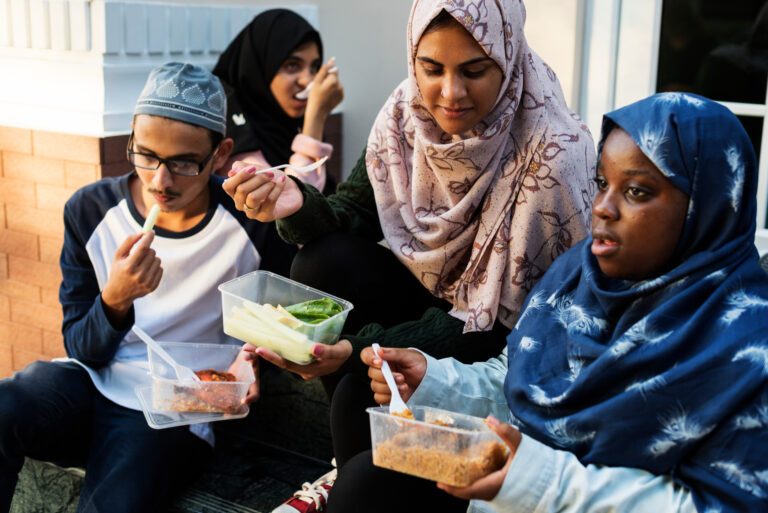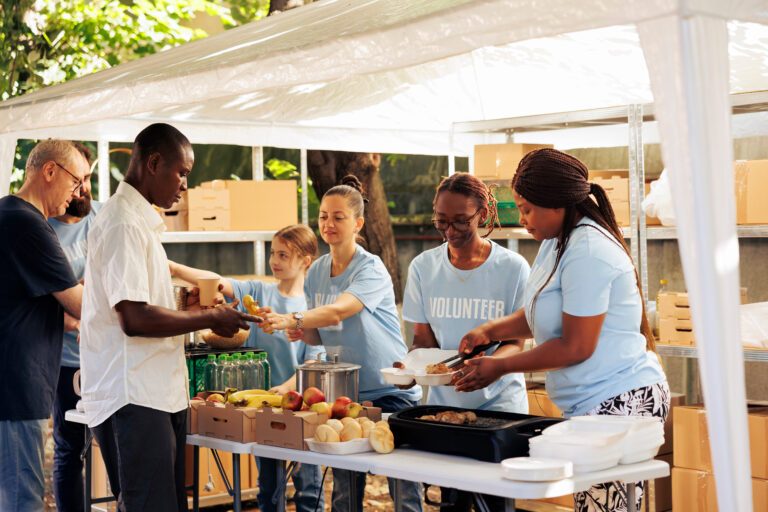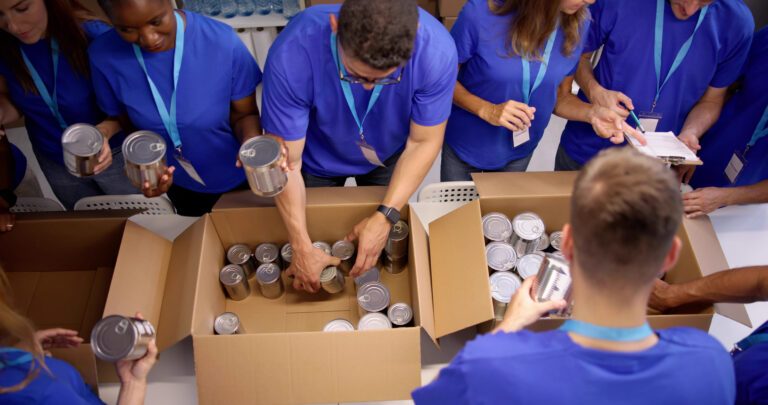Food and Nutrition Security Impact Millions of U.S. Households
Amelia Keleher
IFANCA Is Committed to Addressing This Issue
FOOD INSECURITY RATES ARE ON THE RISE nationwide, according to the U.S. Department of Agriculture (USDA). Recent analysis of national data on American Muslims that was carried out by the Institute for Social Policy and Understanding (ISPU) highlights levels of food insecurity among American Muslims who observe halal, particularly among students and older adults. According to ISPU:
A recent report published by the USDA Economic Research Service (ERS) found that food insecurity increased by 31% in 2022 for all individuals in the United States and by 44% for children nationwide. In 2022, 12.8% (17.0 million households) were food insecure, compared to 10.2% in 2021. Additionally, USDA ERS reports that approximately 55% of food-insecure households participate in the Supplemental Nutrition Assistance Program (SNAP), the Special Supplemental Nutrition Program for Women, Infants, and Children (WIC), or the National School Lunch Program (NSLP).
How Are Food and Nutrition Security Defined?
The USDA defines food security as “access by all members at all times to enough food for an active, healthy life. Food security includes at a minimum: the ready availability of nutritionally adequate and safe foods [and] assured ability to acquire acceptable foods in socially acceptable ways (that is, without resorting to emergency food supplies, scavenging, stealing, or other coping strategies).” Nutrition security is defined as “all Americans [having] consistent and equitable access to healthy, safe, affordable foods essential to optimal health and well-being.”
“Food security is traditionally measured by asking participants a series of screening questions. However, these questions do not always capture the full nature and nuances of individual or household food insecurity, which can lead to food insecurity being underreported.”
For example, it is rare that national food security surveys explicitly ask respondents about cultural food preferences and religious guidelines such as kosher and halal, which makes the work of ISPU particularly valuable to understanding specific needs in Muslim communities nationwide.
It is becoming more and more common for community-led food and nutrition security studies to ask about cultural food preferences. IFANCA’s partnership with K-12 schools and colleges is largely due to these findings, which indicate high levels of food insecurity among Muslim students.
Earlier this year, IFANCA partnered with the Academy of Nutrition and Dietetics to conduct a study of Muslim college students who observe halal dietary guidelines. Preliminary findings indicate that over half of the Muslim college students surveyed classified as food insecure, with approximately one-third (31.1%) falling under the category of “very low” food security. This is more than double the national average for very low food security amongst college students. According to Dr. Anne Mathews, the principal investigator and associate professor of human nutrition at the University of Florida, this means students may actively be skipping meals and losing weight, which she says can impact their GPA (grade point average) and overall academic success.
“One in ten Muslims report they either “sometimes” or “often did not have enough to eat” in the last seven days.”
How Is IFANCA Addressing Food and Nutrition Insecurity?
Culturally Important Halal School Meals
“Compared to the general U.S. student population, Muslim American K-12 and university students are disproportionally impacted by food insecurity due to a lack of access to certified halal foods.”
Food and nutrition insecurity in the K-12 and university population often have serious implications for student learning and wellness, such as underdevelopment, underperformance, and lasting physical and socio-emotional effects.

The HSMN is launching a third-party certified halal school meals program that will eventually reach thirty schools in Southern Maine. The program will start by providing guidelines, oversight, and training to four pilot kitchens across three public school districts. The objective of the HSMN is to ensure that Muslim students who observe halal have equitable access to Maine’s universal school meals through the implementation of a certified halal program, community education and outreach, halal foodservice training and oversight, and community trust and support. The HSMN will bring halal meals to over 12,000 students in the neighboring districts of Portland, South Portland, and Westbrook.
In an effort to address widespread food insecurity across the state of Illinois, IFANCA partnered with the Illinois Muslim Civic Coalition to provide input on the Illinois Faith by Plate Act. The Act passed the House and Senate but was vetoed by the governor. This led State Senator Ram Villivalam to work with stakeholders and the governor on a mutually agreed upon revision to the proposed measure. The bill, SB457, is currently awaiting approval from the House. If passed, it will ensure that K-12 students have access to halal-certified school meals.
At Sullivan High School, a Chicago Public School with a high percentage of refugee and low-income students, a student-led survey found that halal foods are important to nearly all of the one-hundred respondents. Over 80% of respondents indicated feeling “always” or “often” hungry in school due to a lack of suitable halal food options. Additionally, nearly two-thirds of respondents reported bringing food from home, and 75% of those students said they bring food from home specifically due to the lack of halal options at school.

Nutrition Assistance Programs
The Farm Bill and Federal Nutrition Assistance Programs
“In addition to pursuing institutional partnerships that expand access to certified halal options, IFANCA provides input on proposed changes to state and federal legislation that is directly related to addressing food insecurity among halal-observant consumers.”
For example, IFANCA submitted input related to the upcoming Farm Bill, a federal bill that is usually renewed every five years that funds numerous food and agricultural programs, as well as federal nutrition programs including The Emergency Food Assistance Program (TEFAP) and the Supplemental Nutrition Assistance Program (SNAP).
In partnership with the Alliance to End Hunger, IFANCA has met with legislative offices to request expanded access to certified halal options through both SNAP and TEFAP. IFANCA is also actively partnering with the USDA and other national partners to continue emphasizing the need for halal options in federal nutrition programs and addressing the barriers to accessing halal foods.
IFANCA and Partner Resources

As the food and health equity program coordinator at IFANCA, Amelia Keleher advocates for expanding access to halal options in schools, on college campuses, and through federal nutrition assistance programs. Based in Portland, ME, she is committed to cultivating sustainable and equitable food systems in her local community and beyond.